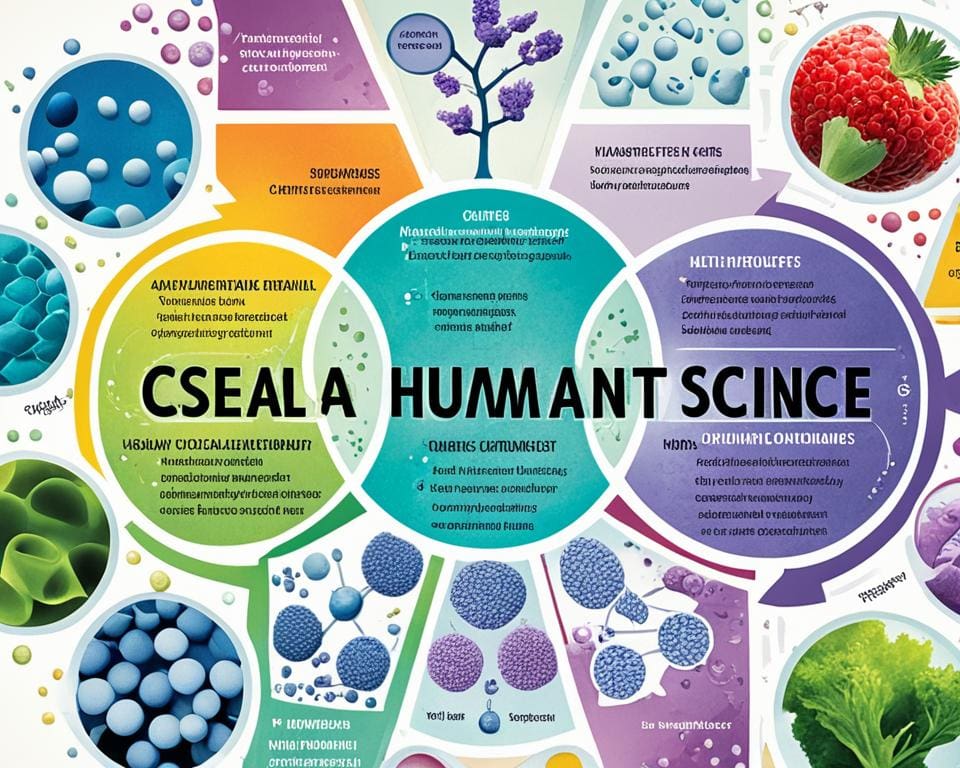Health science education plays a pivotal role in shaping the future of healthcare. At its core, what is health science encompasses a diverse array of disciplines designed to prepare individuals for impactful careers in health science. By integrating the principles of biology, chemistry, and social sciences, students gain a comprehensive understanding of health-related issues that affect society today.
The expansive health science curriculum includes essential coursework in areas such as anatomy, public health, epidemiology, and health policy. This broad scope not only enhances knowledge but also fosters critical thinking and innovative problem-solving skills. The rise in popularity of various health science programs reflects the growing demand for trained professionals who can address the complex health needs of the U.S. population.
What is Health Science?
Health science serves as a crucial multidisciplinary field dedicated to enhancing our understanding of human health and community well-being. This domain encompasses various scientific disciplines to address health promotion, disease prevention, and effective healthcare delivery. The importance of health science resonates deeply within our society as it contributes to individual and collective health outcomes.
Health Science Definition and Scope
The health science definition encompasses an array of knowledge and skills aimed at improving health for individuals and populations. This includes research, education, and practical applications in diverse settings, such as hospitals, universities, and community health organizations.
The scope of health science addresses key areas such as:
- Health promotion strategies that encourage healthy lifestyles
- Disease prevention methods aimed at reducing risks
- Healthcare delivery models ensuring access to essential services
This broad scope emphasizes the necessity for a comprehensive health science curriculum that equips students with the tools to navigate and contribute to this complex field.
The Evolution of Health Science Education
Over the years, health science education has significantly transformed to meet the emerging demands of society. Advances in technology and research methodologies have informed contemporary teaching practices, emphasizing critical thinking and hands-on learning. As a result, health science research is no longer confined to traditional laboratory settings but integrates community engagement and public health initiatives.

The Importance of Health Science in Today’s Society
In an era marked by rapid advancements and unexpected health challenges, the importance of health science has never been more prominent. This field is not merely a collection of studies; it encompasses a holistic approach to understanding and enhancing the health and well-being of populations. Health science jobs are increasingly in demand as professionals work tirelessly to implement effective measures that safeguard public health and safety.
Impact on Public Health and Safety
Health science initiatives significantly impact public health and safety by addressing the pressing issues of our time. Experts in the field conduct extensive research to assess risks, identify vulnerable populations, and devise policies aimed at reducing health disparities. By enhancing access to health resources, these professionals contribute to building healthier communities where everyone has the opportunity to thrive.
Health Science’s Role in Disease Prevention
Another crucial aspect of health science is its commitment to disease prevention. Through innovative health science research, professionals develop effective strategies that educate the public on preventative measures. Vaccination programs, health screenings, and awareness campaigns are just a few examples of how disease prevention strategies can mitigate the impact of illnesses before they escalate into larger crises.
Fostering Innovative Solutions through Health Science Research
The dynamic nature of health science research fosters an environment ripe for innovative solutions. By collaborating across disciplines and engaging with communities, researchers and professionals can address complex health issues with creativity and resourcefulness. This collaboration not only promotes the importance of health science but also inspires the next generation to pursue careers in this vital field, ensuring the continuation of advancements that enhance public wellbeing.









